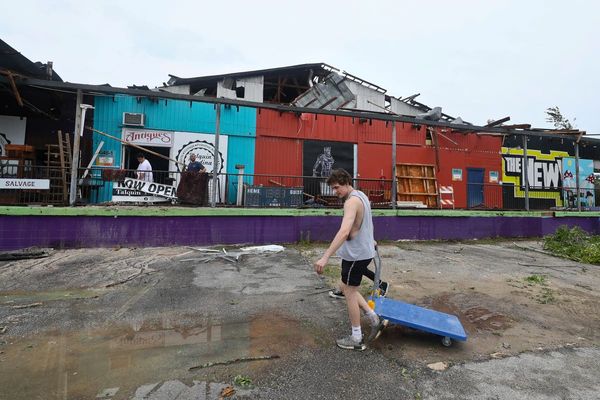
A public inquiry into allegations that 80 Afghans were summarily killed by members of three different British SAS units begins on Monday amid pleas from victims’ families to uncover the truth behind the deaths.
Mansour Aziz, whose brother and sister-in-law were shot and killed while sleeping by British elite forces during a night raid on 6 August 2012, said he hoped the inquiry would establish why his home had been targeted.
Two of their children were also shot and injured, and Aziz said he and the surviving family members wanted “to know the truth”. In a statement released via his lawyers, he said: “We are asking for the court to listen to these children and bring justice.”
Leigh Day, the firm representing Aziz and other victims’ families, said that while there were Afghan news reports of civilians being killed or injured at the time, it was still not clear whether the incident was investigated internally by the SAS, then commanded by Gen Sir Mark Carleton-Smith, or the Royal Military Police.
Afghans were repeatedly found killed at or near their homes following night raids by the SAS, often after allegedly producing weapons when separated from their wider family by British soldiers. In five incidents, lawyers representing victims say the number shot dead exceeded the number of weapons found.
Despite years of concern about the incidents, the public inquiry was granted only late last year after years of legal challenges and investigative journalism, during a period in which some Conservative ministers had sought to dismiss the accusations.
Judicial review proceedings were brought by the Saifullah and Noorzai families in 2019 and 2020. They claimed that the deaths of their family members were a consequence of a policy of extrajudicial killings that were subsequently covered up by the SAS and in Whitehall.
Four members of the Saifullah family were killed during a night raid on 16 February 2011. Another family member said in a new statement that “we lost everything” when the incident took place, and that they had had had nightmares ever since.
The day after the family members were killed, an SAS sergeant major had described the episode as “the latest massacre!” in an email revealed during the judicial review, suggesting the episode was not an isolated incident.
“My family and I request the inquiry team to provide us with the truth and explain to us why and on what basis we had to go through this cruelty,” said the family member, whose identity was withheld by their legal team.
The inquiry will start with three days of opening statements, although large sections will be conducted without the public or press present because of official concern about revealing SAS identities and techniques.
The Ministry of Defence (MoD) will not even acknowledge the involvement of the SAS itself during the public hearings, even though the inquiry is focusing on allegations of massacres by SAS units operating in Helmand province between 2010 and 2013.
Instead, following a ruling from presiding judge Lord Justice Haddon-Cave, it will refer only to UK special forces, a position arrived at after MoD applications for secrecy were rejected in the summer.
Although it is expected to run for several months, inquiry officials said the judge or its legal staff had no plans to try to visit Afghanistan, which has been under Taliban rule following the western withdrawal in August 2021.
Iain Overton, the executive director for Action on Armed Violence, who has been involved in investigating the allegations, said efforts should be made to visit the country or, given the potential difficulties, to at least connect closely with it.
“The inquiry failing to go to Afghanistan is like a homicide unit not visiting the murder scene,” Overton said. Journalists had been able to visit since the Taliban takeover, he said, and while he acknowledged “an official visit might be hard to arrange”, he said the judge should at least “find more engaged ways of verifying these claims”.
The MoD said it was fully committed to supporting the inquiry, which was set up last December by the then defence secretary, Ben Wallace.
“It is not appropriate for us to comment on allegations which may be within the scope of the statutory inquiry and it is up to the statutory inquiry team, led by Lord Justice Haddon-Cave, to determine which allegations are investigated,” a spokesperson said.







